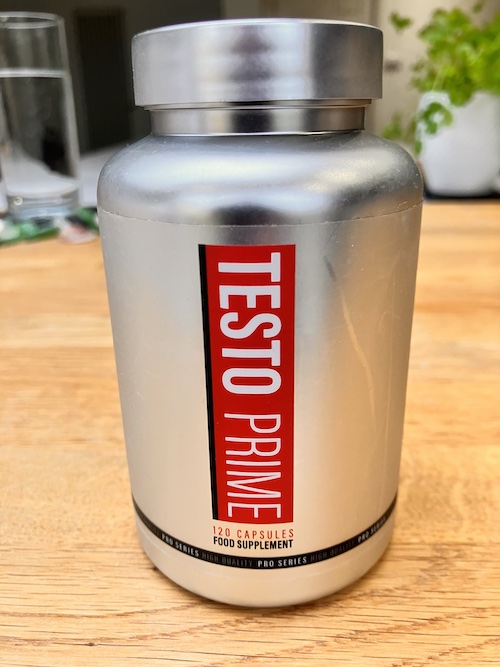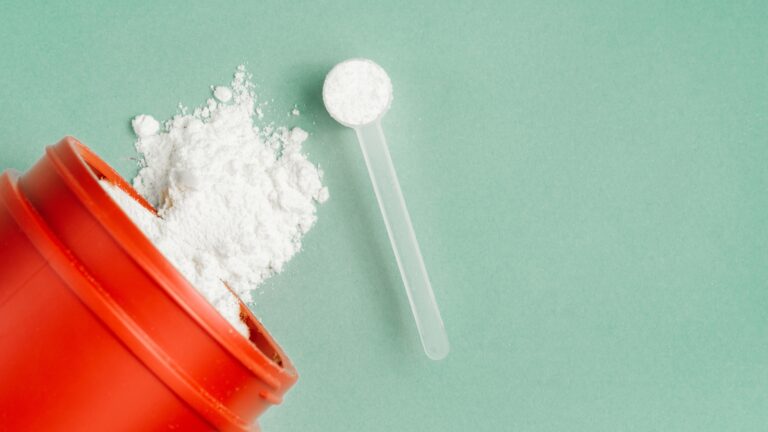Your physical, emotional, and cognitive wellbeing can all take a big hit when your testosterone levels are low – or, even, when they are simply suboptimal.
The health risks associated with low testosterone levels include the likes of cardiovascular disease, decreased bone density, metabolic disorders, and mental health concerns.
Low testosterone levels

Testosterone is a hormone that plays a crucial role in the development and maintenance of male sexual characteristics. It is primarily produced in the testes, although a small amount is also produced in the adrenal glands. In women, testosterone is produced in smaller amounts in the ovaries.
We call low testosterone levels hypogonadism – medically abnormal low levels of testosterone in the body. While it is more common in older men, it can affect males of any age, including adolescents.
However, I don’t just want to talk hypogonadism, here. Your testosterone levels can be in a medically healthy yet still suboptimal range, with some serious health implications.
Hypogonadism is typically diagnosed when your testosterone levels are below 9 or 10 nmol/L. Anything between this and around 34 to 35 nmol/L is considered ‘healthy’.
However, I’ve had levels in the low teens before, and can’t say that I felt too healthy. I was sluggish, with poor cognition, mental fog, depression, and anxiety. I have since taken steps to optimise my natural output, so that it typically hovers around 30 nmol/L, and the difference is night and day. I’m more energetic, more driven, less anxious, and happier.
There can be various causes of low testosterone levels. In some cases, it may be a result of ageing. For example, around a fifth of men over the age of 60 are thought to have low testosterone levels. You can expect to lose around 1% of your natural output year on year after the age of thirty, though there is plenty of room for variation here.
Other causes of low testosterone can include certain medical conditions. These include the likes of testicular diseases or pituitary gland disorders, as well as lifestyle factors like obesity, stress, anxiety, and chronic illness.
Or, sometimes, simple genetics can lead to low output – this, along with some mental health concerns, is what got me.
Diagnosing low testosterone levels typically involves a blood test to measure the amount of testosterone in the body. If levels are found to be below normal, further tests may be conducted to identify the underlying cause. I got a few blood tests done privately, and continue to get them every six months to keep on top of things.
And, happily, low testosterone levels can often be treated. Exogenous testosterone supply is pretty common, using injections, patches, gels, or pellets. Lifestyle changes, such as regular exercise, a healthy diet, low alcohol intake, no smoking, clever supplementation (which I’ve found to be absolutely key), and weight management, can also have a positive impact on testosterone levels.
The latter is generally most effective with suboptimal levels, rather than with full-blown hypogonadism.
Common symptoms and effects of low testosterone levels

So, how do you know if you’ve got low testosterone levels? Or, rather, how do you know it’s a good time to test for low levels?
Low testosterone levels can lead to a range of symptoms and effects in both men and women, though men will typically be hit harder. I would suggest that all men keep an eye out for them, and if in doubt – or even just as a safeguard – conduct regular blood tests.
Symptoms can vary from person to person and may be subtle or pronounced, depending on the severity of the testosterone deficiency.
One of the most common symptoms of low testosterone in men is a decreased sex drive or libido. Testosterone is a key hormone involved in sexual desire, and when levels are low, you may see sexual drive and even performance being impaired – you may struggle to achieve or maintain an erection.
Apart from sexual symptoms, low testosterone levels can also affect mood and mental wellbeing. This is what really got me. Many men with low T experience increased irritability, depression, or a general sense of low energy and fatigue.
Alongside a depleted sex drive, you may notice a low drive overall, a lack of desire to do anything. As part of this, you may find it difficult to concentrate, experience a lack of motivation, or feel physically drained even after minimal exertion.
In addition, low testosterone levels can have a noticeable impact on physical health and body composition. Testosterone is crucial for the development and maintenance of muscle mass and strength.
When testosterone levels are low, men may experience a decrease in muscle mass and an increase in body fat, particularly in the abdominal region. This can lead to reduced physical performance, decreased stamina, and a general feeling of weakness.
Again, this got me. I am a personal trainer with a long history of athleticism, yet I suddenly found my strength and muscle mass withering no matter what I tried. My performance and appearance took a real hit.
Low testosterone can also affect bone density and increase the risk of osteoporosis in both men and women. Testosterone helps to maintain bone tissue, and when levels are low, it can contribute to bone loss and an increased susceptibility to fractures.
Low testosterone in men can also lead to gynecomastia, or ‘man boobs’ – breast tissue, in short. Obviously, this can be a real confidence knock.
Finally, low testosterone can impact sleep patterns. Some people with low testosterone levels may struggle with insomnia or disrupted sleep, which will obviously make those feelings of fatigue hit harder and affect overall wellbeing.
Of course, many – or, rather, all – of these can be caused by other health conditions or lifestyle factors. It’s always a good idea to check in with your healthcare provider if you’re experiencing any of them, or if you’re in any way concerned about your own testosterone levels.
Health risks associated with low testosterone levels

So, that’s how we can spot low testosterone, and some of the daily challenges that it can present. But what is the prognosis – what are the longer-term health concerns associated with low testosterone levels?
If your testosterone levels are low, you will run an increased risk of suffering with cardiovascular disease. Low testosterone levels have been linked to an increased likelihood of developing conditions like heart disease, high blood pressure, and atherosclerosis.
This is because testosterone helps to regulate red blood cell production, as well as maintaining blood vessel health and promoting overall cardiovascular health.
Low testosterone levels may also greatly impact bone health. Testosterone plays a crucial role in maintaining bone density and strength. If your testosterone levels are low, you will run a higher risk of developing osteoporosis, a condition characterised by weak and brittle bones. This will in turn increase your chances of suffering with fractures and injuries, especially as you age.
Low testosterone has also been linked with an increased risk from certain metabolic disorders, including diabetes and obesity. Testosterone helps to regulate insulin sensitivity and metabolism – low can lead to impaired glucose control and, thus, weight gain. This can contribute to the development of type 2 diabetes and further escalate your risk from cardiovascular concerns.
Low testosterone levels can also affect mental health and cognitive function. As above, this hit me pretty hard. Depression, anxiety, irritability, fatigue, difficulties with memory and concentration, and cognitive decline can all be rife where testosterone levels are sub-par.
Low testosterone levels can even affect your overall longevity – it is closely linked to mortality rates. Research suggests that men with low testosterone may have a higher mortality rate and a greater risk of dying prematurely compared to those with normal testosterone levels.
With such a broad ranging laundry list of symptoms and health risks associated with it, there is perhaps little wonder here.
It is important to note that the health risks associated with low testosterone are not limited to men. Women can also experience health complications and effects due to low testosterone levels, although their symptoms may differ.
Women with low testosterone may experience decreased bone density and an increased risk of osteoporosis, a decrease in muscle mass and strength, changes in mood and energy levels, and a decrease in overall quality of life.
Treatment and management of low testosterone levels

Happily, there is a lot we can do to treat low testosterone levels, and to optimise suboptimal levels. This is what I’ve been working on with myself for the last couple of years, and I’ve had some really promising results.
These include things like lifestyle changes, medications, and testosterone replacement therapy (TRT). I’ve not had to go in for the latter – my levels were on the low side of healthy, rather than falling into fully blown hypogonadism per se. So, really, it’s all been about lifestyle changes.
Regular exercise and weight management can help to increase testosterone levels. Strength training and muscle building exercises, such as weightlifting, can be particularly good here – they promote testosterone production and help you to maintain muscle mass.
Additionally, maintaining a healthy weight and reducing excess body fat can have a positive impact on testosterone production.
Adequate sleep, stress reduction, and a balanced diet are also important aspects of lifestyle management for low T.
Diet plays a key role in testosterone production. You will need to follow a diet rich in various nutrients and healthy fats to support testosterone synthesis.
Foods that are high in zinc, vitamin D, and magnesium – we’re looking at things like lean meats, nuts, seeds, oily fish, and leafy green vegetables – can help you to optimise testosterone levels. Adequate protein intake is also important for muscle health and testosterone production.
However, it is important to note that diet alone may not be sufficient to significantly increase testosterone levels in those with clinically low testosterone. Medical intervention will likely be necessary, and will generally take the form of exogenous testosterone input – you will basically take pre-made testosterone and put it into your body, typically using injections, gels, patches, or pellets implanted under the skin.
In some cases, the underlying cause of low testosterone, such as a pituitary or testicular disorder, needs to be addressed to effectively manage the condition. Treating the root cause may involve medications, surgery, or other interventions, depending on the specific condition and individual circumstances.
Supplementation is always a good option for managing low testosterone levels. This is the main change I made – I was already a healthy weight, with a healthy diet and lifestyle, and followed a decent resistance training regime.
Several natural supplements on the market claim to improve testosterone production or alleviate symptoms of low testosterone, with varying degrees of clinical legitimacy. These supplements often contain ingredients like D-aspartic acid, fenugreek extract, ashwagandha, and Tribulus terrestris.
There are some great supplements out there, and there are some awful ones too. Do some research before investing in any testosterone boosting supplements. If in doubt, we’ve reviewed plenty of the leading brands here.
Get all of these right – diet, lifestyle (including plenty of sleep, a lack of stress, and plenty of exercise) supplementation, and, if needed, medical intervention, and you should be able to properly optimise your testosterone output.
You’ll be able to reap the rewards with plenty of health benefits, and plenty of health concerns averted.








